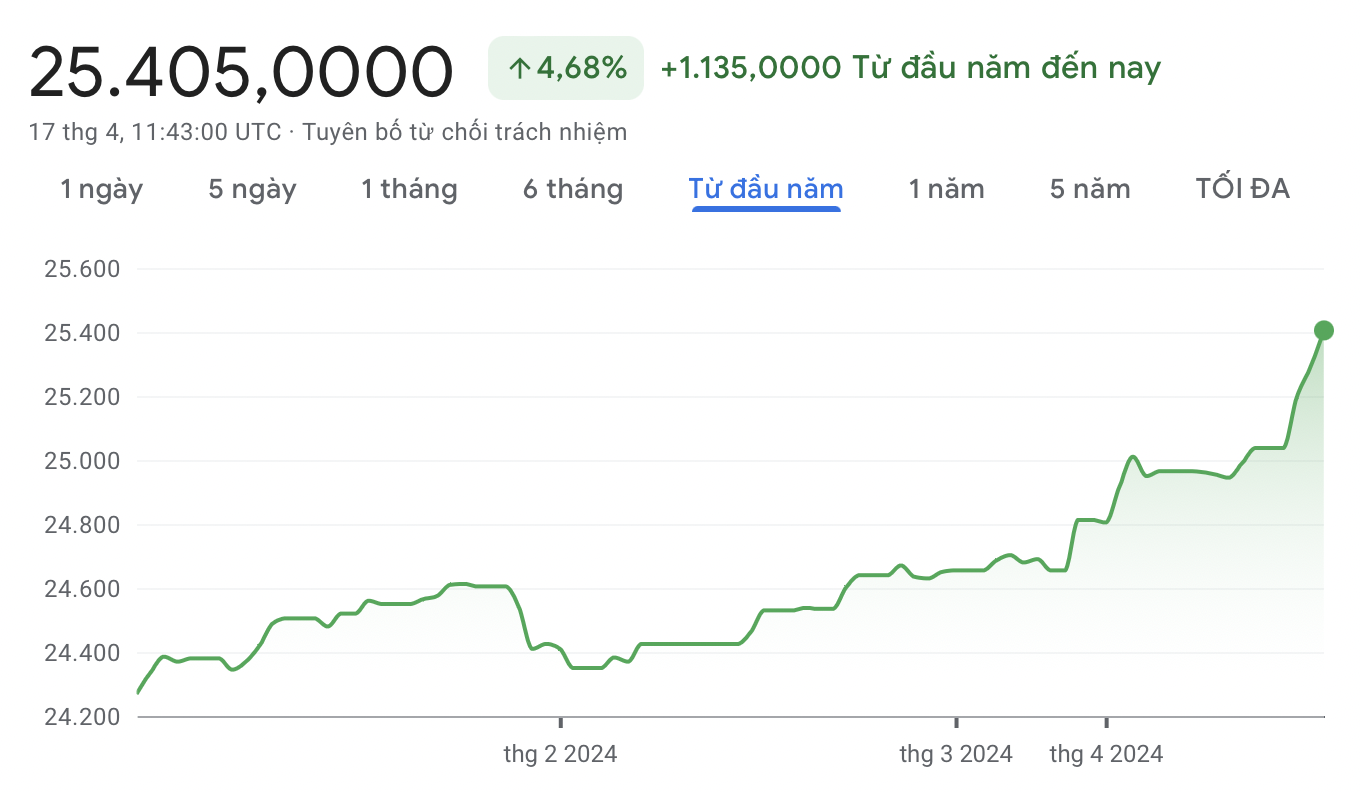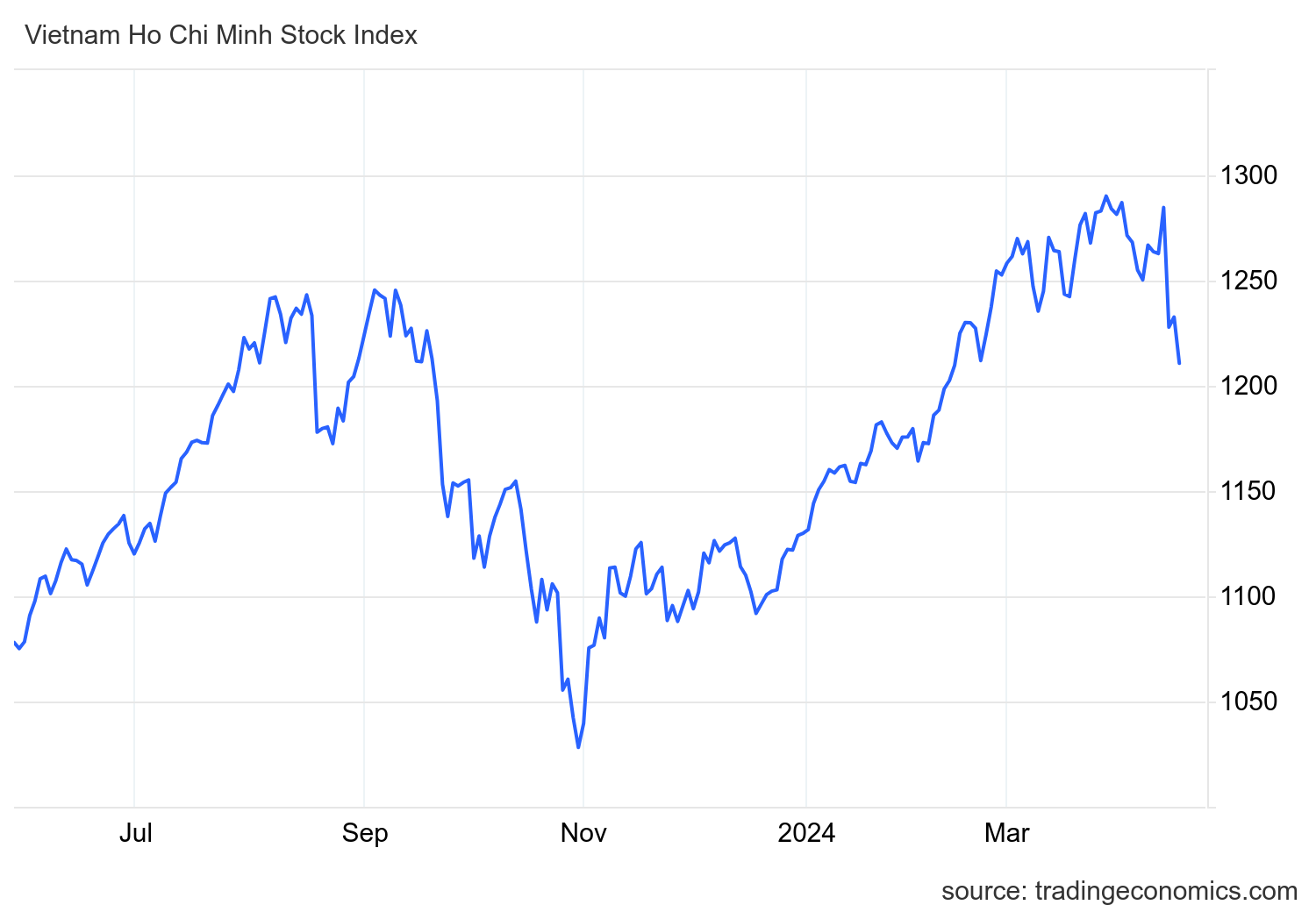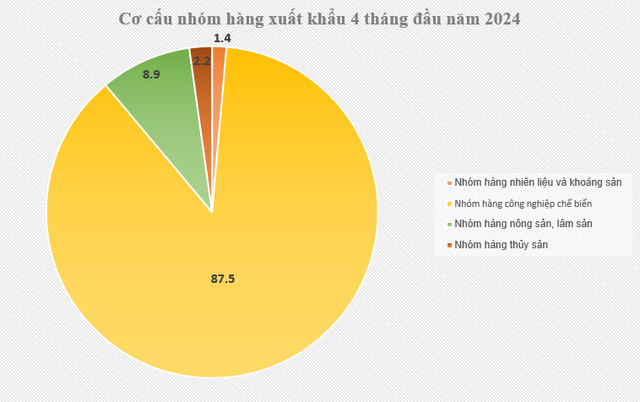The stock market is experiencing a volatile phase marked by sharp and decisive declines. After a steep loss of nearly 60 points, profit-taking pressure persisted, causing the VN-Index to officially fall below the support level of 1,200 on April 17th. Thus, after only three trading sessions, the market has “lost” a total of almost 84 points, falling to 1,193 points – the lowest level in almost two months. Continuously declining, what will be the next trend of the index?
Mr. Bui Van Huy, Director of the DSC Securities Branch, believes that the market is being strongly impacted by both domestic and global developments.
Regarding the global context, the negative development of the US CPI has pushed back the expected timing of the Fed’s interest rate cut. This has led to a sharp increase in bond yields, and the US dollar has continued to rise to the peak levels of September-October last year. Meanwhile, geopolitical conflicts remain an unpredictable variable, and fluctuations in the commodities market are also adding pressure.
Domestically, there are also many negative factors such as inflation and lending rates gradually increasing, especially the rapid increase in exchange rates due to pressure from interest rate differentials and recent global developments.

However, Mr. Huy believes that under normal conditions, exchange rate pressure will only lead to a short-term adjustment, rather than create a bear market if it does not cause macroeconomic imbalances. Macroeconomic imbalances mean that when the State Bank of Vietnam (SBV) is no longer able to intervene using foreign exchange reserves, or through administrative measures, or has to consider raising interest rates.
VN-Index unlikely to “break” 1,180 points
The main drivers of the stock market this year are seen by DSC experts as three factors: (1) Low interest rates and monetary easing, (2) Domestic economic recovery, and (3) Expectations of market and KRX upgrades.
Although not overly optimistic, Mr. Huy said that the possibility of the VN-Index decreasing by 15-20% is unlikely. The level around MA200, equivalent to 1,180, will provide strong support for this decline. The stock market can only “break” the above level if domestic growth pillars are clearly violated and the global stock market falls sharply.
The global market outlook is not particularly “bright”, but there will likely be at least one interest rate cut before the US election in September. In summary, experts believe that the risks to the global market will be greater towards the end of the year, rather than now.

With domestic pillars such as low interest rates and monetary easing, domestic economic recovery, and expectations of market and KRX upgrades, the current risk is at a warning level and does not yet threaten a sharp reversal in monetary policy.
Although there are still some other factors, they are not overly concerning. Another factor is that as banks still have the “game” of capital increases and splits, bank stocks still have the opportunity to recover, making it difficult for the VN-Index to fall deeply.
Regarding the investment strategy, DSC experts believe that when the market rises, everything looks good, and when it “falls”, everything looks bad, it is important to remain clear-headed and understand your own situation before taking any action. For those who follow the trend and want confirmation, it means that they only participate when the situation improves, and there is clearly a risk of “catching a falling knife” at the moment. However, it is important to recognize that when things become clear, the valuation will be higher. For those who make early decisions and rely on speculation, Mr. Huy recommends gradually allocating around MA200, that is, around 1,180, with an appropriate weighting.





































